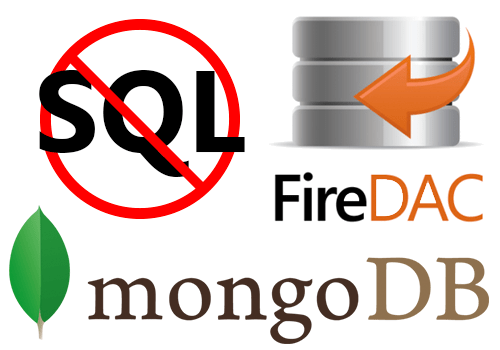It was pointed out in the comments and on G+ that this covers type aliases, but not procedure aliases. Instead it shows how to have a variable that references a procedure and then allows you to call it by this new variable. While I used alias as meaning “reference by a different name” it does in fact have a specific definition in this context. Sorry if there was any confusion or undue frustration at imprecise terminology.
I just answered a question about how to alias a procedure. I thought it was interesting enough to share here.
It is easy enough to alias a type . . .
type
my_integer = integer;
then we can just use my_interger in place of integer as a type. But what about a procedure (or function for that matter)?
There are two different ways, depending on if the procedure is a member of a class. For straight up procedural procedures and functions it looks a little something like this:
procedure HelloWorld; // declare our procedure
begin
ShowMessage('Hi');
end;
var
my_proc: Procedure; // declare our alias
begin
my_proc := HelloWorld; // assign the alias
// ...
if assigned(my_proc) then // verify the reference
my_proc; // call the alias
end;
This is pretty straight forward. We just create an alias reference variable of the right type, and assign it to the procedure we want to alias reference. If you call an alias reference variable that is unassigned you will get a null reference access violation.
You can also streamline it a little like this
var // or as const
my_proc: procedure = HelloWorld;
Then you know it is assigned. I guess this would be useful if you want to alias reference a procedure declared in a different unit.
This works the same for functions or procedures with parameters.
procedure Hello(name: String);
begin
ShowMessage('Hello ' + name);
end;
function Nine: integer;
begin
Result := 9;
end;
var
argumentative: procedure(s: string) = Hello;
number: function: integer = Nine;
Notice that the name of the argument doesn’t have to match, but the number, order and types do. If they don’t then you will get the error
E2009 Incompatible types: ‘Parameter lists differ’
Now what if you are dealing with procedures or functions that are members of an object? If you try to assign them to the above types you will get the error
E2009 Incompatible types: ‘regular procedure and method pointer’
And that is because members of an object are method pointers. Fear not, you can handle them with just a slightly different type declaration:
type
TMethod = procedure of object;
TFunc = function: integer of object;
TNotifyEvent = procedure(Sender: TObject) of object;
In this case they are declared as types with “of object” added to the end. This indicates that they are procedures of an object. AKA members or method pointers.
You can read more about procedural types and method pointers in the DocWiki.
Why would you want to do any of this? First of all, the method pointer is how the VCL & FMX handles dependency injection through event handlers. This is also really useful when combined with anonymous methods and the parallel programming library.
 This week we are highlighting Delphi and InterBase MVP Danny Wind. He is an experienced Delphi trainer, consultant and developer for the Delphi Company. He specializes in FireMonkey, User Interfaces and Threading. Danny is also a regular speaker at Developer Days, at SDN conferences, and Delphi launch events in the Netherlands or Belgium, as well as the Delphi training days in the Netherlands. Virtually he is a frequent presenter at our CodeRage online virtual conference, and is regularly blogging.
This week we are highlighting Delphi and InterBase MVP Danny Wind. He is an experienced Delphi trainer, consultant and developer for the Delphi Company. He specializes in FireMonkey, User Interfaces and Threading. Danny is also a regular speaker at Developer Days, at SDN conferences, and Delphi launch events in the Netherlands or Belgium, as well as the Delphi training days in the Netherlands. Virtually he is a frequent presenter at our CodeRage online virtual conference, and is regularly blogging.
 This week we are highlighting the work of
This week we are highlighting the work of 








 As a way to acknowledge some of the hard work and amazing contributions each of our MVPs provides we are starting a new MVP of the Year program. It is already a few months into 2016, but I would like to start by recognizing our MVP of the year for 2015, Stefan Glienke. (He is missing from the
As a way to acknowledge some of the hard work and amazing contributions each of our MVPs provides we are starting a new MVP of the Year program. It is already a few months into 2016, but I would like to start by recognizing our MVP of the year for 2015, Stefan Glienke. (He is missing from the  Very active in the developer community,
Very active in the developer community, 












